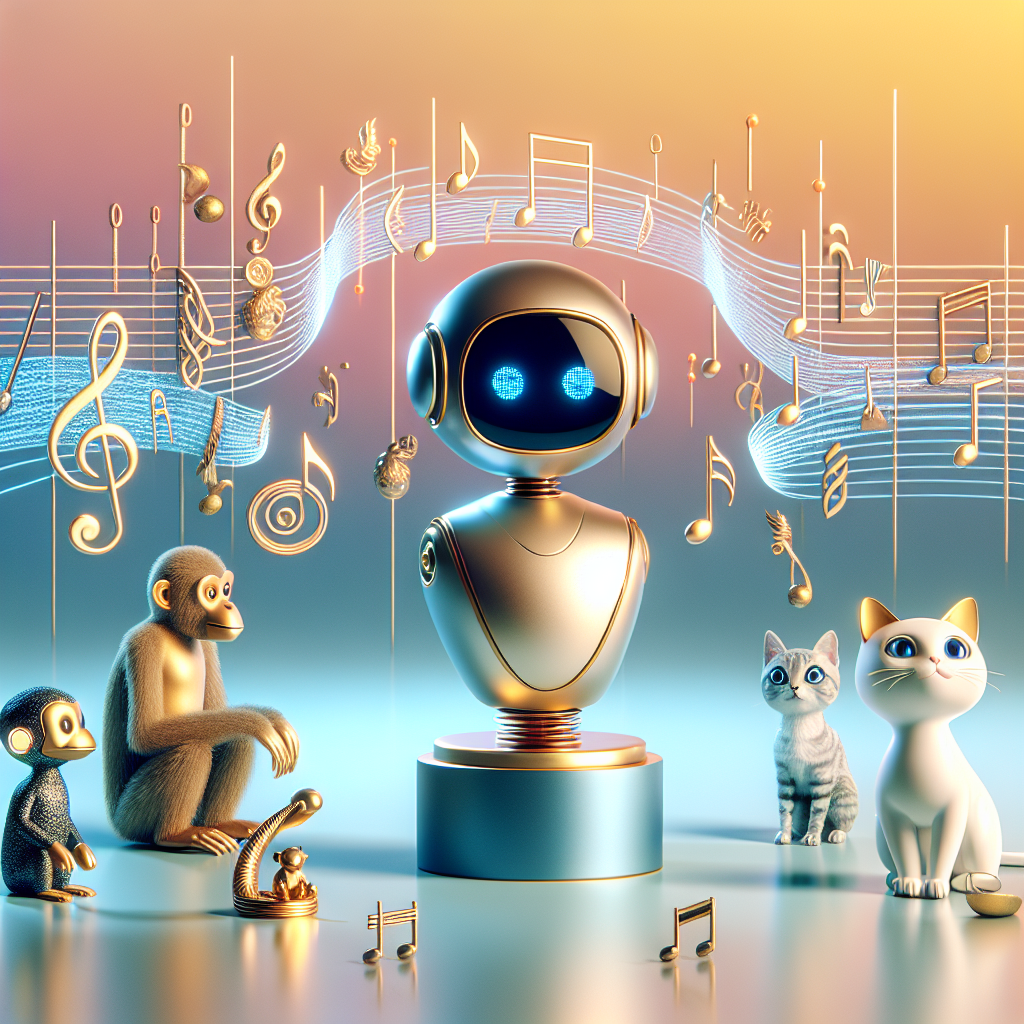Generative AI, or artificial intelligence that can autonomously create content, has made significant advancements in recent years, particularly in the realm of music composition. This technology has the ability to compose original pieces of music, generate melodies, harmonies, and even entire compositions, all without human intervention. The role of generative AI in music composition is one that is rapidly evolving, with many artists, composers, and music enthusiasts exploring the possibilities that this technology offers.
Generative AI in music composition works by using algorithms to analyze existing musical data and patterns, and then using this information to create new music. This can involve generating melodies, harmonies, rhythms, and even entire compositions. The AI can be trained on a vast amount of music data, allowing it to learn and mimic different musical styles and genres. This technology has the potential to revolutionize the music industry, offering new tools for artists and composers to explore and experiment with their creativity.
One of the key benefits of generative AI in music composition is the ability to generate music at a much faster pace than a human composer. This can be particularly useful for musicians who are looking to quickly create new pieces of music, or for composers who are looking for inspiration. Additionally, generative AI can also help to overcome creative blocks, by providing new ideas and directions for music composition.
Generative AI in music composition also has the potential to democratize music creation, making it more accessible to a wider range of people. This technology can be used by musicians of all skill levels, from beginners to seasoned professionals, allowing them to experiment with different musical ideas and styles. This can help to foster creativity and innovation in the music industry, by providing new tools and resources for artists to explore.
Despite the many benefits of generative AI in music composition, there are also some challenges and concerns associated with this technology. One of the main concerns is the issue of copyright and intellectual property rights. As generative AI can create original music compositions, there is a potential for disputes over ownership and attribution of these works. It is important for artists and composers to be aware of these issues and to take steps to protect their rights when using generative AI in their music composition.
Another challenge with generative AI in music composition is the issue of bias and diversity. As AI algorithms are trained on existing musical data, there is a risk that they may perpetuate existing biases and stereotypes in music. This can limit the diversity and inclusivity of music created by generative AI, and may reinforce existing patterns and norms in the music industry. It is important for developers and users of generative AI to be aware of these issues and to take steps to address them in their work.
Despite these challenges, generative AI in music composition has the potential to revolutionize the way music is created and consumed. This technology offers new possibilities for artists and composers to explore their creativity, experiment with different musical ideas, and push the boundaries of music composition. As generative AI continues to evolve and improve, it is likely to play an increasingly important role in the music industry, shaping the future of music composition and production.
FAQs:
Q: Can generative AI replace human composers?
A: While generative AI has the ability to create original music compositions, it is unlikely to replace human composers entirely. AI can be a valuable tool for artists and composers, providing new ideas and inspiration for music creation. However, the creative process and emotional depth that human composers bring to their work is difficult to replicate with AI alone.
Q: How can artists and composers protect their rights when using generative AI?
A: Artists and composers can protect their rights when using generative AI by clearly defining ownership and attribution of the music created by the AI. It is important to have clear agreements in place with developers and collaborators, outlining how the music will be used and credited. Additionally, artists can consider registering their works with copyright organizations to ensure that their rights are protected.
Q: What are some examples of generative AI in music composition?
A: There are many examples of generative AI in music composition, including tools like Google’s Magenta project, which uses AI to create music and art. Other examples include AIVA, Amper Music, and Jukedeck, which are AI platforms that can generate original music compositions. These tools can be used by artists, composers, and music producers to create new music in a variety of styles and genres.
Q: How can generative AI help to overcome creative blocks in music composition?
A: Generative AI can help to overcome creative blocks by providing new ideas and directions for music composition. AI algorithms can analyze existing musical data and patterns, and use this information to generate new music compositions. This can be particularly useful for artists and composers who are struggling to come up with new ideas, or who are looking for inspiration to break out of a creative rut.

